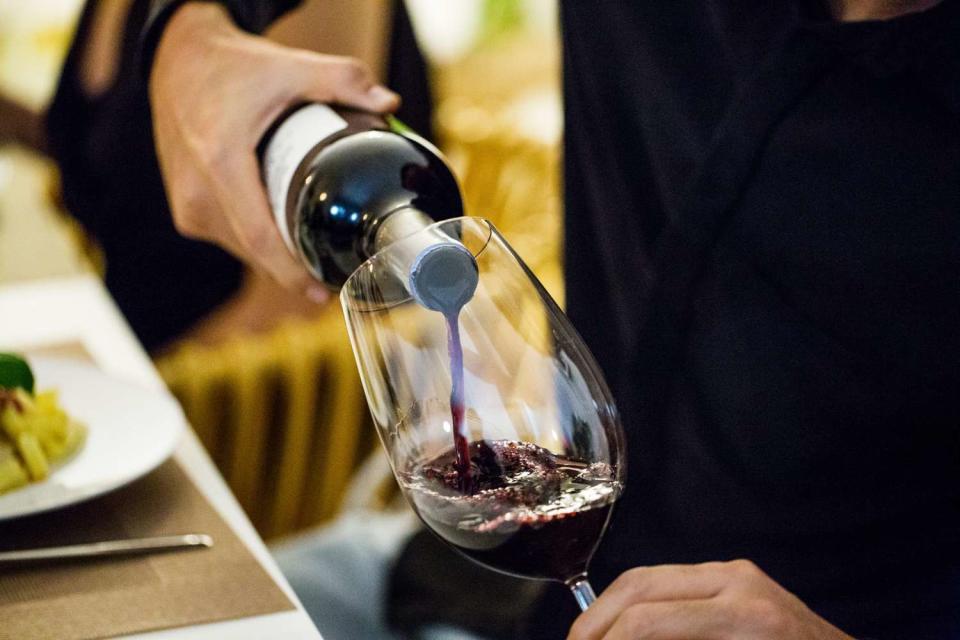Consumers Think Inexpensive Wine Tastes Better When Told It Costs More, a New Study Says
The label on a bottle of wine, how much it costs, where it's from, and how it tastes can all affect how consumers judge a glass of wine. However, price may be the biggest factor that determines how we perceive the quality of a certain wine. According to a new study conducted by researchers at Basel University in Switzerland, consumers were more likely to favor a cheap red wine if they were lied to and told that it was actually expensive.
In order to test their theory, researchers stocked up on three different Italian red wines produced in 2013, ranging in price from £8, £25, and £50. When the bottles were presented to consumers, the prices were intentionally mislabeled to deceive those who were participating in the study. The cheapest wine was given a deceptively high price and was ultimately considered to be the most pleasant of the three, performing 20 percent better in the taste test.
Related: Should You Judge a Wine Based on Its Price?

Luis Alvarez / Getty Images
"Wine companies are clever," Jens Gaab, a placebo researcher from Basel University in Switzerland, told The Times. "They know this. They know that if they make wine more expensive it tastes better—and they aim for that, because it's a huge market." As part of the study, 140 participants—none of whom were wine experts—tasted six glasses containing 10ml of wine. Three of these glasses contained Wine A, B, and C with no pricing information. The other three glasses also contained Wine A, B, and C, but included a label that either featured their true price tag or a deceptive price tag.
Participants were asked to judge each wine based on its pleasantness and taste intensity on a scale of one to six. When a cheap bottle was labeled as being more expensive than it was, customers found it to be more palatable. However, adding a cheaper price tag to a truly expensive bottle of wine did not make consumers think less of it. Therefore, researchers believe that distorting prices can make a cheap wine taste more pleasant, but can't make an outstanding wine taste less pleasant.
"Thus, in wine may lay the truth, but its subjective experience may also lie in the price," the researchers wrote in their paper, which was published in Food Quality and Preference.

